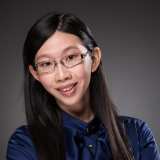Fangfang Tan
-

Fangfang Tan
Former PhD candidate, now she is Data Science Manager at LinkedIn‘I was very happy with my choice in retrospect, mostly due to the lifetime experience I got throughout my academic journey at Tilburg’
Fangfang Tan obtained her PhD degree in behavioral and experimental economics in 2011. After 3.5 years working in academia as a research fellow in Germany (the Max Planck Institute) and the US (UC Santa Cruz), she made a career switch to the tech industry in Silicon Valley. Currently she is a Data Science Manager at LinkedIn.
How did you become a PhD candidate at Tilburg University?
Back in 2006, the university where I got my Bachelor’s degree (Zhejang University in Hangzhou, China) had just started offering a dual master’s program with Tilburg University. I was immediately attracted by everything offered by the program upon my first two months of arrival and decided to stay longer, switching from the M.Sc program to the research master program (M.Phil), followed by the PhD program. My parents understood the value of good education and were both very supportive of my decisions, thankfully. I contemplated joining a US PhD program close to finishing my research master’s degree in 2008. After comparing the offers I had at that time, I decided to again stay at Tilburg for my PhD. I was very happy with my choice in retrospect, mostly due to the lifetime experience I got throughout my academic journey at Tilburg: the excellent yet quite approachable & supportive of their PhD students faculty members, the low student-faculty ratio, the wonderful facilities (e.g., the CentER lab, offices with great window view) and the quiet town (adjacent to international cities like Amsterdam, Rotterdam, Brussels). I lived close to campus with 3 other Dutch law students on Westertorenlaan and enjoyed regular Sunday afternoon walks and lively discussions with friends in the small forest, the Warande.
What was your research about and how did your career develop?
My PhD dissertation focused on how interactive strategic decisions are shaped by the constraints imposed in the laboratory setting. I ran experiments at the CentER lab and enjoyed working with Professor Charles Noussair, Wieland Müller, Jan Potters and many others. My plan was to continue on the path of a research career to build up my academic credentials. I accepted a 3-year research fellow position at the Max Planck Institute in Munich and would have stayed longer, if it were not for family reasons: I met a software engineer who was looking for career opportunities in Silicon Valley. In 2014 shortly after getting married, I moved to the Bay Area to be with my husband and joined the University of California (UC) Santa Cruz to work as a research fellow on an NSF grant with Professor Daniel Friedman. Machine learning was a new type of research for me and we partnered with computer scientists on adding incentivized self-reported mechanisms in the recommender system. Collaboration between academia and tech in the Silicon Valley is much closer which smooths my transition to the tech industry. Knowledge of experimental economics comes in handy with new product launches! However, I did have to train myself to learn the language of statisticians. I’ve worked at Facebook, Google and now LinkedIn and the culture varies within each of these. Move fast and break things, Facebook’s culture, is different from craftsmanship LinkedIn is thriving for.
What are your career plans?
I think I will stay in tech for the next 5-10 years. I’m now managing a sizable team and maybe in the longer run I’d be interested in joining a startup and becoming an entrepreneur. Later in life, I might be looking to develop initiatives in the field of philanthropy, which is very well established in the US. It makes a lot of sense to support the reciprocal cycle – more money (for education, scholarships) develops more talent. I’ll probably not look for a fulltime scholar position [she smiles]. The impact coming from building new tech products empowering millions of users is enormous and valuable.
What advice do you have for current PhD candidates?
Never limit yourself (i.e., I was trained to do xyz at school): stay curious and take risks in your career! I recommend a recent inspiring book called “Choose Possibility” by Sukhinder Cassidy (Stubhub CEO) which talks about how to take (small, accumulative) risks and thrive even when you could fail. That quite resonates with my tech journey so far.
